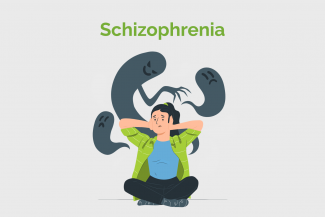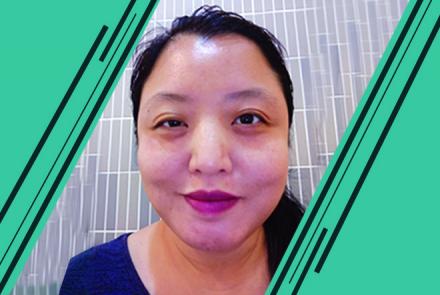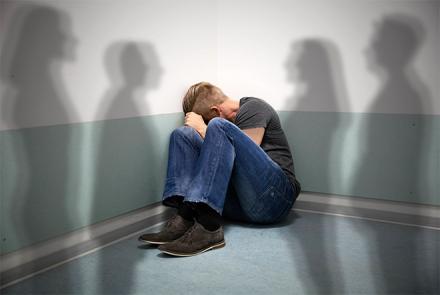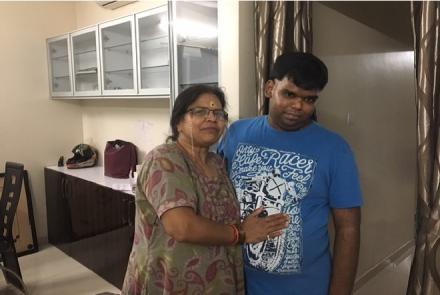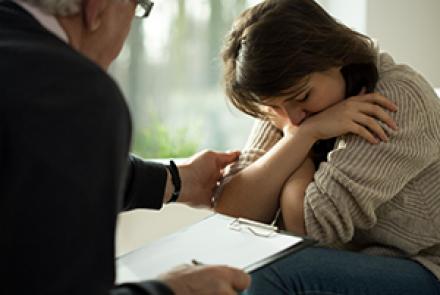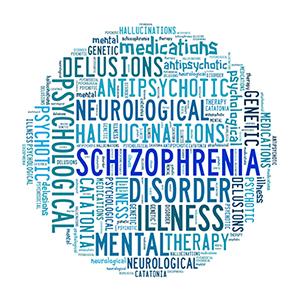
What are the signs and symptoms of Schizophrenia?
The symptoms exhibited at different stages are different. The symptoms do not appear suddenly. They creep in stealthily and may be present for weeks to months before they progress to a full blown state. Stages of Schizophrenia elaborates how the symptoms progress.
The signs and symptoms of schizophrenia are broadly grouped into two:
- Positive symptoms
- Negative symptoms.
Positive symptoms of schizophrenia are behaviors and experiences that the ill person has, that healthy people do not.
1. Delusions: These are false beliefs that are firmly held with conviction by the patient however untrue it may be to others. These include feelings of:
- being watched by others all the time ( hidden cameras, walls being bugged).
- their food being poisoned.
- their partners/spouses being unfaithful to them.
- their thoughts being known to others
- people plotting against them and their dear ones
- being controlled by external forces sometimes through electric/electronic devices secretly implanted in some part of their body
- that everybody around them is talking about them /teasing them
- things said or happening on television or radio having a special meaning or significance to them.
- thoughts being removed, inserted in their brains and also that their thoughts are being read by others.
- Being extremely powerful, very wealthy, or being gods or kings, etc.
2. Hallucinations: These are false perceptions i.e., they are imaginations involving all the five sense organs namely eyes, ears, nose, tongue and skin. They see imaginary figures, hear imaginary voices and smell, taste and feel sensations that are not real.
Imaginary voices (auditory hallucinations) are most common in schizophrenia. Visual hallucinations can also occur. The other modalities of sensation can also be involved though not very common in schizophrenia.
The voices in schizophrenia which form the hallmark of the disease are of many types.
- They may comment on the person’s behavior continuously (mostly derogatory).
- There may be more than one voice and they can discuss the person in question among themselves.
- The voices can threaten the person of harm befalling him or his family
- Voices can command the person to perform certain acts and control the person completely.
The hallucinations can be very strong and overpowering - driving the person to do things which he would not otherwise do. This can result in violent behavior, causing harm to self and others.
3. Disorganised speech: Schizophrenia is primarily a disorder of thinking which is reflected in the spoken words which can be difficult to understand. It can be incoherent and irrelevant to the context of a conversation. There may be jumps from one topic to another which are unrelated. Sometimes the ill person says that he/she feels confused or muddled.
4. Disorganized Behavior: There can be problems in performing directed daily activities leading to neglected personal hygiene and appearance and disinterest in the surroundings.
5. Catatonic Behavior: The individual remains unaware and does not respond to things happening around him, has a rigid posture, resists movement or instructions and sometimes maintains odd postures for prolonged periods of time. We are seeing less of catatonia nowadays.
Negative symptoms of schizophrenia refer to the absence or reduction of certain behaviours that are normally present in people. The range and intensity of emotional expression, communication, body language and interest in normal activities are restricted.
- Blunted (or flat) Affect: Decreased emotional expressiveness, unresponsive immobile facial appearance, reduced eye contact and body language.
- Alogia: Reduced speech. Responses are detached and speech is not fluid.
- Avolition: Lacking motivation, spontaneity, initiative. Sitting for lengthy periods or ceasing to participate in work or daily activities.
- Anhedonia: Lacking Pleasure or interest in activities that were once enjoyable.
- Attention Deficit: Difficulty in concentrating
In addition, persons with schizophrenia can also feel depressed and anxious.

